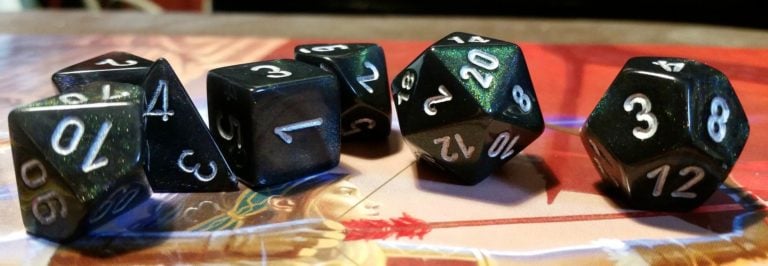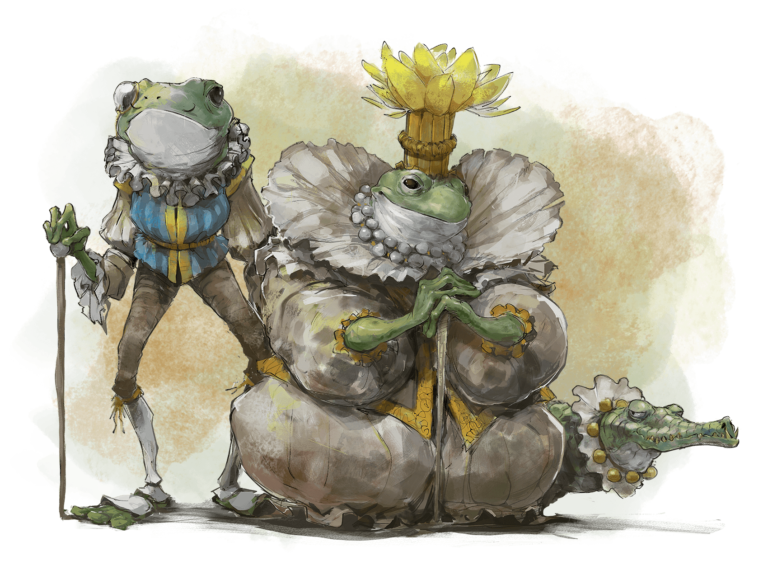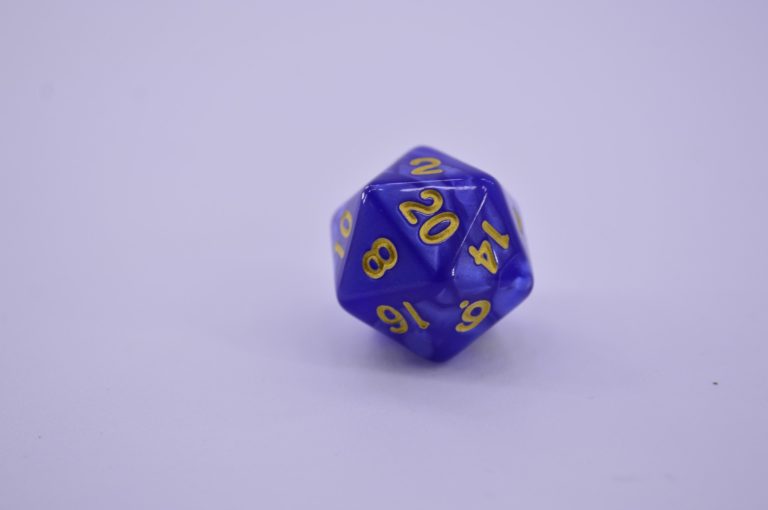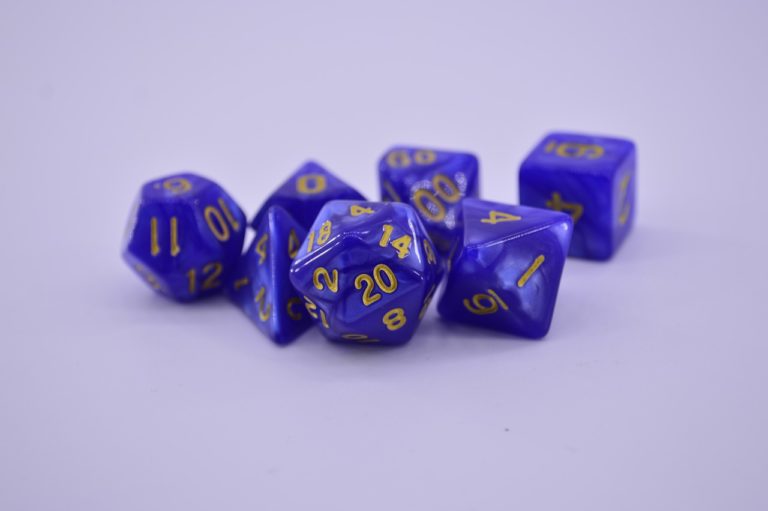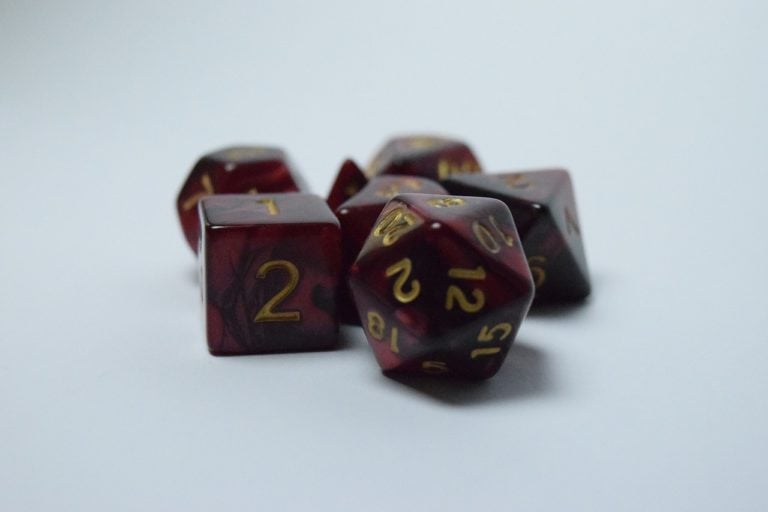Alchemist 5E Guide | Artificer Specialist Breakdown
Eberron: Rising from the Last War introduced the Alchemist class into 5e, a fan favorite from D&D editions past! It’s a shame that it’s a subclass now, but at least it made it in. The Alchemist uses an alchemy kit to perform near miraculous acts. They can create extracts from thin air and administer them nearly instantly. They focus on using their alchemical talents to heal or harm, with very little in-between. So, even though alchemists are now a subclass, they’ve kept a little bit of their flavor, at least! But does that mean their dungeoneering expertise has been demoted as well? There’s only one way to find out. Let’s take a deep dive in our Alchemist 5e Guide.

Table of Contents
Infuse Their Demise: Alchemist Artificer 5E
The Alchemist is an aggressive part of the Artificer 5e class with off-healing potential. It does nearly nothing with the Infusion mechanic of the Artificer and focuses entirely on spells. It gives additional incentive to use cantrips over making weapon attack rolls, and adds a neat but random utility ability to your toolkit.
Tool Proficiency
To start, you just gotta know how to use alchemist’s tools. Thankfully, this archetype doesn’t force you to spend a proficiency on it.
When you adopt this specialization at 3rd level, you gain proficiency with alchemist’s supplies. If you already have this proficiency, you gain proficiency with one other type of artisan’s tools of your choice.
A single proficiency is standard amongst Artificer subclasses, but it always feels a bit… Poor. At least you can rely on Flash of Genius for any ability checks you make! Thankfully, Alchemist’s Tools offers perhaps the greatest utility of the three. Alchemist’s tools allow you to create alchemical items, which have been fantastic sources of additional aid since the concept of a Healing Potion was conceived. In older editions, this would be a fantastic source of additional healing, escape tools, and creative solutions.
It’s a shame 5e has so few of them.
Depending on how your GM handles this, you’ll either be able to only exactly what’s on the tin, or you can maybe make some basic potions. It’s totally up to them. You can still use the DC’s given in Alchemist’s supplies to solve problems and be creative, but it’s pretty restrictive. See if your GM will let you use Intelligence (Alchemist’s supplies) for rudimentary potions.
Alchemist Spells
To augment your ability to cast artificer spells, you gain a few spells that you automatically prepare. That means you can always spend spell slots on these. You get them at the listed level.
| Alchemist Spells | |
| Artificer Level | Spells Prepared |
| 3rd | Healing Word, Ray of Sickness |
| 5th | Flaming Sphere, Melf’s Acid Arrow |
| 9th | Gaseous Form, Mass Healing Word |
| 13th | Blight, Death Ward |
| 17th | Cloudkill, Raise Dead |
Due to your 5th-spell-level max, this gives you benefits from the start, right to the end. Healing Word is, arguably, the best healing spell in the game, just because it’s a Bonus action. Not needing to spend time to bring an ally up from unconsciousness is the best. Ray of Sickness isn’t usually that good to spam during combats, but a debuff put on the right target can swing the fight to your favor. Time this well!
Flaming Sphere is alright to use often, since it’s such good use of your spell slots. Melf’s Acid Arrow also does damage over time, but does it to a target that you can’t change. At least you don’t have to concentrate, and this has better synergy with future class abilities.
Gaseous Form is pretty situational, since it’s almost strictly defensive or escape, with okay scouting potential. Not bad, but you’re probably not the scout, so just use it if you need to bail. Mass Healing Word, unlike Healing Word, isn’t that good of a spell. Unless your entire party’s knocked out. Then it’s great.
Blight is decent damage on a single target, and is likely your go-to option if you really need to down something. Death Ward might not make too much sense in terms of Alchemy, but you can put this on all of your party members at the start of the day and piss off a lich. That’s worth something, right? Might be a better use of your time than Blight.
Cloudkill has extremely efficient spell-to-damage economy, especially against creatures weak to poison. Raise Dead’s great, but you get it a little late. I hope you had at least a Druid or something in the party! All in all, great choices. None of these spells are strictly wasteful; your level 3 spells are the only ones that can be considered bad, and they’re really not that bad. You’re a pretty great healer now!
Experimental Elixir
To add to the Artificer’s growing list of resources, you gain an additional ability that you prepare and expend.
Beginning at 3rd level, whenever you finish a long rest, you can magically produce an experimental elixir [using a set of alchemist supplies] in an empty flask you touch [2 at level 6, 3 at level 15. Each Elixir is rolled separately]. Roll on the Experimental Elixir table for the elixir’s effect, which is triggered when someone drinks the elixir. As an action, a creature can drink the elixir or administer it to an incapacitated creature…
You can create additional experimental elixirs by expending a spell slot of 1st level or higher for each one. When you do so, use your action to create the elixir in an empty flask you touch, and you choose the elixir’s effect from the Experimental Elixir table.
This is a hugely fun and great support mechanic. It’s a shame it’s a completely random effect, at least for your free ones.
There are 6 different effects for your experimental elixir. You want to roll a 4 or a 5.
- Healing: Flat 2d4+Intelligence. Like a 2nd level Healing Word… but you spend an action.
- Swiftness: +10 Walking speed for an hour. Long buff, decent target, but +10 speed is only sometimes useful.
- Resilience: +1 to AC might not sound significant, but it’s untyped, and it lasts for 10 minutes. That’s a few fights where the target has a +5% chance to be missed. Not awful!
- Boldness: +d4 to all attacks and saving throws for a minute. Crazy good buff! Like a Bless, if Bless applied to saving throws.
- Flight: Flying speed of 10 might not sound like much, but that gives you the chance to fly over obstacles at level 3. Not insignificant! Good for positioning.
- Transformation: Much like Alter Self, it’s not exactly huge. You get 3 buff options here, but the only one with any major significance is the swim speed. The natural attack is likely useless (outside of “disarmed” situations) and the disguise is fine, but requires that a disguise is useful.
When you spend spell slots, you get to choose it, which means you can guarantee you have what you need.
This turns your spell slots into a pretty definitely useful buff; Boldness itself is probably worth a 2nd level spell. And Resilience will make your Cleric or Paladin really happy. If only you could have a way to choose the effects of the experimental elixirs you make in the morning… alas.
Alchemical Savant
To make cantrips seem more enchanting, you’ve gotten to a point where you get some damage synergy.
At 5th level, you develop masterful command of magical chemicals, enhancing the healing and damage you create through them. Whenever you cast a spell using your alchemist’s supplies as the spellcasting focus, you gain a bonus to one roll of the spell. That roll must restore hit points or be a damage roll that deals acid, fire, necrotic, or poison damage, and the bonus equals your Intelligence modifier (minimum of +1).
So, you can apply this to three separate effects, but they have to be spell slots. Sorry, Experimental Elixir!
You mostly care about damage here. Even if you get to the Mythical +10 Intelligence modifier, you’re still not outpacing the Heal spell. And Healing Word isn’t really here to heal someone to full (though this does wonders for AoE healing spells. Mass Healing Word just got a boost!). It’s still nice to have on healing.
But, damage? That’s where it’s at! This adds your Intelligence modifier to cantrips. That means Acid Splash just got a massive damage boost, as did Poison Spray. Those are your only two damage options, but both deal damage with the same damage roll to multiple targets. That’s pretty great! You’ll probably want to use Acid Splash more than Poison Spray, just to stay out-of-range of melee characters.
You’re an Artificer, so your spell slots lag behind full-caster slots. This +5-+10 (if only!) of damage helps you a tiny bit, but doesn’t do that much. It’ll help for the initial damage of spells like Cloudkill, at least! It’s helpful in it’s own small way.
Restorative Reagents
At long last, you get an improvement to your coolest class ability!
Starting at 9th level, you can incorporate restorative reagents into some of your works:
- Whenever a creature drinks an experimental elixir you created, the creature gains temporary hit points equal to 2d6 + your Intelligence modifier (minimum of 1 temporary hit point).
- You can cast Lesser Restoration without expending a spell slot and without preparing the spell, provided you use alchemist’s supplies as the spellcasting focus. You can do so a number of times equal to your Intelligence modifier (minimum of once), and you regain all expended uses when you finish a long rest.
Not bad! Not bad at all! So, your experimental elixir now “heals” for an average of 7 + Intelligence. That means your Healing Experimental Elixir heals for 12 + double intelligence. That’s actually a solid health shield! And your other buffs just help people take hits, as well. It likely won’t block a full damage roll from a monster, but it might be the difference between consciousness and unconsciousness.
Lesser Restoration is a decent spell, and you’ve just prepared an Intelligence modifier number of them. Blinded, Paralyzed, and Poisoned are ridiculously strong status effects, so being able to casually end all of them a number of times per day is great! Deafened is… there too? There’s really not much mechanical downside to deafened, but you have so many Lesser Restorations that you might as well cure that as well! In fights where the difficulty is Paralysis or Blinding, this is great!
Both aspects of this ability are crazy good. Experimental Elixir is probably worth most, if not all, of your 1st and 2nd level spell slots. And maybe consider not preparing Lesser Restoration with normal spell slots.
Chemical Mastery
After 6 levels, you get yet another 2 benefits related to your alchemy!
By 15th level, you have been exposed to so many chemicals that they pose little risk to you, and you can use them to quickly end certain ailments:
- You gain resistance to acid damage and poison damage, and you are now immune to the poisoned condition.
- You can cast Greater Restoration and Heal without expending a spell slot, without preparing the spell, and without providing the material component, provided you use alchemist’s supplies as the spellcasting focus. Once you cast either spell with this feature, you can’t cast that spell with it again until you finish a long rest.
That’s three good defensive conditions. Acid and Poison are… fairly common? Acid’s less common than Poison, but having resistance to both covers a decent percentage of monsters; Poison is usually added to weapon damage, and there are some really damaging acid spells. And the Poisoned condition is essentially disadvantage on “yes.” You want immunity to disadvantage on “yes.”
Greater Restoration, similar to Lesser Restoration, is situationally powerful. Being able to remove Ability score reductions, hit point maxes, curses, or petrifications will come in handy. Being able to do that for free is even better! However, there are times when you’ll easily go for a few days without needing to get rid of that stuff.
That’s why it’s nice to have Heal in the pocket for 70 health. That’s an effective use of an action! And it even cures a few other status effects, just in case 5 Lesser Restorations weren’t quite cutting it. Remember, since this doesn’t use a spell slot, it’s cast as a 6th level spell. No automatic heightening for you! Not that you could cast higher than 5th level to begin with.
Once again, both of these effects are significant and fantastic! Remember, if you get to level 15, that you’ll always have a Heal in your pocket.
Best Race for Alchemist Artificers
Because you have Alchemical Savant, you’ve got to get your Intelligence as high as you can. Afterwards, you probably want Dexterity for saving throws and AC. Then, Constitution will keep your d8 self from instantly dying.
Rock Gnome
Gnomes are the only race in the Player’s Handbook to gain a +2 to Intelligence. That makes them a pretty obvious choice! Gnomes also get Darkvision (great for dungeoneering!) and Gnome Cunning (great for anti-magic!).
Rock Gnomes seem to be made for Artificers; Artificer’s Lore is basically free Intelligence (History) Expertise, and Tinker is hilarious with Magical Tinkering. You get so many solutions to random problems! Your party will love your character’s style.
Vedalken
The Guildmaster’s Guide to Ravnica introduced the only other +2 Intelligence race to the mix with the Vedalken. With a +1 to Wisdom also under their belt, they’ll be sure to save against mental effects. That’s… partially because they stole the Gnome’s Cunning feature with a new name. However, Tireless Precision can be used to make you great at a specific skill. You’ll be the master of Arcana! Partially Amphibious is… fine? It’ll help you out in underwater situations, if only for a brief time.
Alchemist 5E FAQ
What Book is Alchemist in 5E?
You can find the alchemist artificer in Tasha’s Cauldron of Everything.
How Long Do Experimental Elixirs Last?
The length of time your experimental elixir can last varies. The experimental elixir lasts until it is drunk or until the end of your next long rest. In other words, you will need to re-create an elixir at the beginning of an adventuring day either way.
Does Alchemical Savant Apply to Experimental Elixir?
No, alchemical savant does not apply to experimental elixir. Alchemical savant applies to spells you cast using your alchemist’s supplies as a spellcasting focus. Your experimental elixirs are not spells.
Conclusion – Our Take on the Alchemist Artificers
The Alchemist is the strictly caster variant of Artificers, but Artificers are naturally poor at casting. They just don’t have the spell slots to keep up! However, with decent cantrips, experimental elixir, and a ton of free spells, you’ll find that you can still be almost as effective as a 9th level caster with this Artificer Subclass. Try out Alchemist if you want a new spin on the support role, and only need an off-healer to be an effective party.

